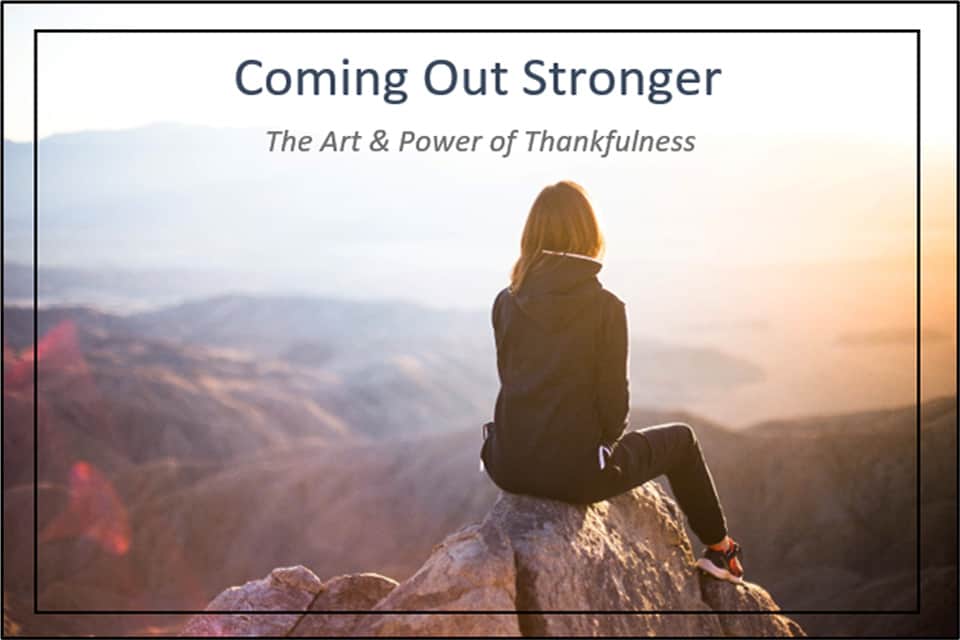Needless to say, this year has been quite a wild ride for all of us. None of us entered into 2020 thinking that it would take such a drastic turn. Stress and frustration levels for many have risen as we’ve faced unexpected challenges from something that we’ve had little to no control over. There have been fears for the present and fears for the future in the wake of a pandemic that still carries somewhat of a sense of ambiguity with it and makes for continued uncertainty. Not to mention riots and unrest throughout our nation. With all these events compiling added stress in our personal lives and places of employment, how can we navigate through these uneasy waters and make it through to the other side without developing a dark outlook on life and work? How do we keep these things from closing in around us and casting a dark cloud over our home, work and mental environment?
Embrace thankfulness.
According to studies conducted by the University of Southern California, along with an article by Amy Morin in Psychology Today, thankfulness, or gratitude, seems to be linked with health and stress relief. Not only that, but gratitude can have a lasting positive effect on the brain and encourage the development of resilience, even after a traumatic experience.
Perhaps you would not rate the events of this year and how they’ve affected you as “traumatic.” But then again, maybe you would. Regardless of our circumstances, thankfulness can help us to rise above negative experiences, not allowing them to determine our level of happiness and well-being. We may not have control over everything that happens in our lives. But we do have control over our responses and the mental attitudes we adopt.
Some things that Amy Morin points out that are benefits of gratitude are:
• Improvement to physical health
• Improved relationships
• Improved psychological health
• Enhanced empathy and reduced aggression, less likely to retaliate or seek revenge
• Better sleep
• Better self-esteem
• Increased mental strength
In a time when it is very easy to look at all the bad, negative things going on around us, it can be hard to switch to looking at the good things around us and being consciously thankful for those things. However, here are just a couple ideas to help you get started!
• Write a thankful letter
Think of something that someone did for you that you appreciated, even if it was a long time ago, and write a letter expressing your thanks. Even if you never send the letter, or you don’t really know that person (think of the person who helped you pick up an armful of paperwork that you accidentally dropped as you hurried to a meeting) write it anyways. This begins training your brain to turn in the positive direction of gratitude in every situation.
• Keep a thankful journal
Everyday, write at least one thing you’re thankful for in your journal. Think of why you’re thankful for it and write that down too. As you begin to log these instances of gratitude, you’ll start noticing them more and enjoying more deeply the good experiences you have.
Feel like you can’t think of anything to be thankful for? No matter how bad things are, we all have something to be thankful for. Even if it’s the fact that you got to eat today, you’re not starving and that’s plenty to be thankful for. Is the sun shining? Be thankful that you have the capacity to know it’s shining and enjoy its warm rays.
When we choose to be thankful, it changes our outlook on life. Instead of a dark and gloomy perspective, we can have a brighter view. Instead of allowing circumstances to erode our mental health, physical health and relationships, we can come out stronger through the cultivation of genuine gratitude.
Again, we can’t always control what happens around us or even to us. But we can control our response and how we come out on the other side. Embrace thankfulness and come out stronger.


